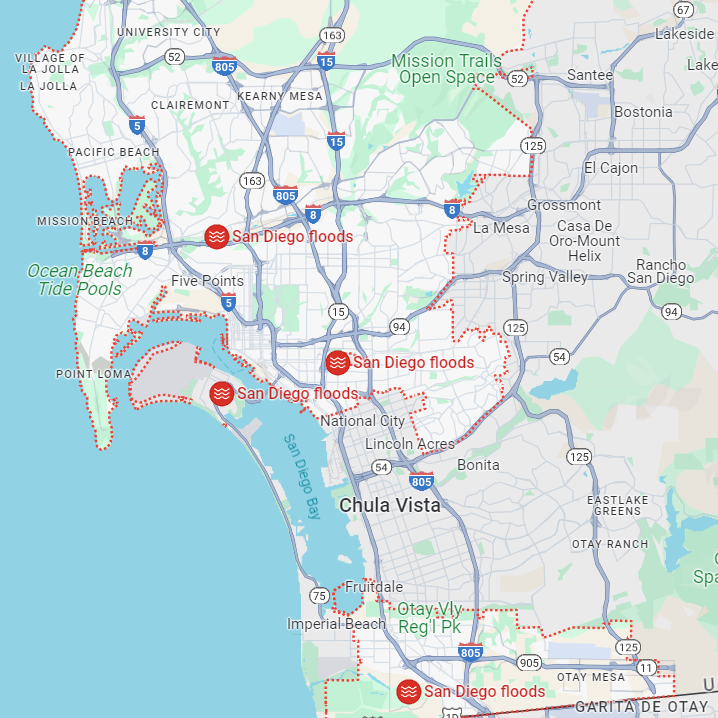At the start of this week, communities in San Diego experienced their rainiest January day in recorded history. Homes and businesses were flooded, causing millions of dollars in damage and displacing hundreds of people.
Governor Gavin Newsom declared a state of emergency for San Diego County and Ventura County, which experienced severe flooding in late December. Extreme weather events such as these are becoming common as a result of climate change.
The effects of the storm were widespread, but not felt equally by all. Some of the worst flooding was in District 9, which is home to many low-income, Black and Latino/a/x residents. City Council President Sean Elo-Rivera, who represents that district, told the LA Times that the money that’s needed to repair the city’s aging stormwater infrastructure should be allocated equitably, “prioritizing the communities that have been left behind and are most likely to be devastated by events like yesterday.”
From storms to wildfires to infectious diseases, emergencies in California are not a matter of IF but WHEN – and how we respond. Public Health Advocates formed the California COVID Justice initiative in 2021 to advance equitable policies in response to the COVID pandemic. Now, in 2024, as the Emergency Resilience Project, we are building on that work to fight for equity in the preparedness and response to all of the types of emergencies we are likely to face.
We’re calling for the creation of an equity framework that can be used to guide funding and resources when a state of emergency is declared. A just response means putting the money where the pain is.

Flood zones in San Diego, from Google Maps.
